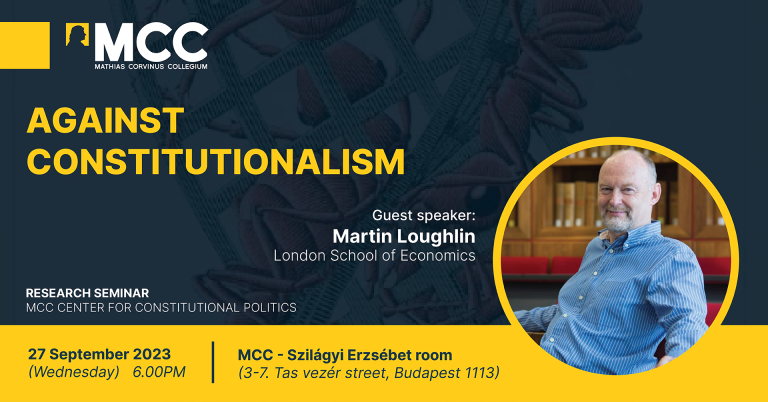ENG
Since 2013, the EU and the member states have been experiencing a constant flow of irregular migrants from both the Eastern and the Southern flank of the continent. Millions of people have arrived: some of them escaped from war, as the Ukrainian refugees, while others just wanted to enjoy the economic benefits and the greener pastures of Europe. In addition, certain countries – like Belarus – utilized and facilitated the flow as an instrument of hybrid warfare to jeopardize the stability and the values of the EU. Considering the numbers, irregular mass migration means a huge burden for European welfare states and the integration process of the newly arrived persons evokes numerous challenges. Yet, the current proposal and debates on the new Migration and Asylum Pact of the EU Commission demonstrate that we cannot see the light at the end of the tunnel: despite the problems generated by the European migration crisis, some EU institutions and member states are still hindering a lasting solution. Moreover, the problem of migration has become a political issue both at EU level and in member states, where certain forces are constantly trying to impose solutions with political motivation. The attitude towards the different solution proposals have also become a key part of the debate about the future of the Union.
The joint conference of the Wacław Felczak Polish-Hungarian Cooperation Institute and the Migration Research Institute addresses the main political, security, social and economic challenges of irregular mass migration in order to address all the problems based on actual facts and data. The first panel of the event will analyse the general consequences and perspectives of migration to certain European societies, both in the western part of Europe and the Central European region, while the second panel will concentrate on the weaknesses of the Migration and Asylum Pact and the possible way ahead. We will also try to highlight concrete case studies.
Conference programme
12.00: Opening Remarks
12.10: The Price and the Effects of Migration on European Policy and Societies. War refugees. Labor migration. Illegal migration to the EU.
- Nicolas Monti, Co-founder, Observatoire de l’immigration et de la démographie (Paris)
- Ralph Schoellhammer, Assistant Professor in Political Science, Webster University Vienna
- Tomasz Grzegorz Grosse, Professor in Politology, European studies, and Political Science at the Warsaw University
- Piotr Kowalczuk, editor, long-time correspondent of Polish Radio and Rzeczpospolita daily in Rome
- Moderator: Róbert Gönczi, Junior Analyst, Migration Research Institute (Budapest)
13.00: Q and A
13.10: Coffee Break
13.30: The Current Challenges of Migration Crisis from Border Control to the Migration Asylum Pact
- Gyula Mikolicz, Pol. Lt. Col., Deputy Head of the Asylum Directorate, National Directorate-General for Aliens Policing (Budapest)
- Witold Repetowicz, expert on the Middle East, terrorism and geopolitics, assistant professor at the War Studies University
- Viktor Marsai, Executive Director, Migration Research Institute (Budapest)
- Moderator: Róbert Gönczi, Junior Analyst, Migration Research Institute
14.20: Q and A
14.30: Concluding remarks
The conference will be held in English.
Contact for the organizers: info@migraciokutato.hu
Contact for the press: eszter.lappints@mayweather-miller.com, blanka.zetenyi@mayweather-miller.com, timea.csorba@mayweather-miller.com
POL
DEKADA RUCHU WYZWANIA I STAWKI NIEREGULARNEJ MIGRACJI MASOWEJ W EUROPIE
28 września 2023 r
Gmach MCC przy ulicy Tas vezér 3-7, Budapeszt
Od 2013 r. UE i państwa członkowskie doświadczają stałego napływu nielegalnych migrantów zarówno ze wschodniej, jak i południowej flanki kontynentu. Przybyły miliony ludzi: niektórzy uciekli przed wojną jak uchodźcy ukraińscy, inni zaś chcieli po prostu cieszyć się korzyściami gospodarczymi i zielonymi pastwiskami Europy. Co więcej, niektóre kraje – np. Białoruś – wykorzystały i ułatwiły przepływ migrantów jako narzędzie wojny hybrydowej, zagrażając tym stabilności i wartościom UE. Z powodu masowej skali nielegalna migracja stanowi ogromne obciążenie dla europejskich państw, a proces integracji nowo przybyłych osób niesie ze sobą wiele wyzwań. Jednak obecny wniosek i debaty Komisji Europejskiej na temat nowego Paktu o migracji i azylu pokazują, że nie widzimy światła na końcu tunelu: pomimo problemów wywołanych europejskim kryzysem migracyjnym instytucje UE i niektóre państwa członkowskie nadal utrudniają trwałe rozwiązanie. Ponadto problem migracji stał się kwestią polityczną zarówno na poziomie UE, jak i w państwach członkowskich, gdzie pewne siły nieustannie próbują narzucać rozwiązania z motywacją polityczną. Kluczowym elementem debaty o przyszłości Unii stał się także stosunek do różnych propozycji rozwiązań.
Wspólna konferencja Instytutu Współpracy Polsko-Węgierskiej im. Wacława Felczaka i Instytutu Badań nad Migracjami poświęcona jest głównym wyzwaniom politycznym, społecznym i gospodarczym związanym z nielegalną masową migracją oraz bezpieczeństwa, aby wszystkie problemy rozwiązać w oparciu o faktyczne fakty i dane. Pierwszy panel dyskusyjny będzie analizą ogólnych konsekwencji i perspektyw migracji dla społeczeństw europejskich, zarówno w zachodniej części Europy, jak i w regionie środkowoeuropejskim, natomiast drugi panel skoncentruje się na słabości Paktu o Migracji i Azylu oraz możliwej drogi naprzód. Postaramy się także zaprezentować konkretne studia przypadków.
PROGRAM KONFERENCJI
12.00: Otwarcie konferencji
12.10: Cena i skutki migracji dla polityki i społeczeństw europejskich. Uchodźcy wojenni. Migracja zarobkowa. Nielegalna migracja do UE.
- Nicolas Monti, współzałożyciel Observatoire de l’immigration et de la démographie (Paryż)
- Ralph Schoellhammer, adiunkt nauk politycznych, Uniwersytet Webster w Wiedniu
- Tomasz Grzegorz Grosse, profesor socjologii, europeistyki i nauk politycznych na Uniwersytecie Warszawskim
- Piotr Kowalczuk, redaktor, dziennikarz, wieloletni korespondent Polskiego Radia i Rzeczypospolitej w Rzymie
- Moderator: Róbert Gönczi, młodszy analityk, Instytut Badań nad Migracją (Budapeszt)
13.00: Pytania i odpowiedzi
13.10: Przerwa kawowa
13.30: Aktualne wyzwania kryzysu migracyjnego od kontroli granicznej do paktu o azylu migracyjnym
- Ppłk. Pol. Gyula Mikolicz, Zast. Dyrektora Dyrekcji ds. Azylu w Krajowej Dyrekcji Generalnej ds. Cudzoziemców (Budapeszt)
- Witold Repetowicz, ekspert ds. Bliskiego Wschodu, terroryzmu i geopolityki, adiunkt w Akademii Sztuki Wojennej
- Viktor Marsai, dyrektor wykonawczy, Instytut Badań nad Migracjami (Budapeszt)
- Moderator: Róbert Gönczi, młodszy analityk Instytut Badań nad Migracją
14.20: Pytania i odpowiedzi
14.30: Uwagi końcowe
Konferencja odbędzie się w języku angielskim.
Kontakt do organizatorów: info@migraciokutato.hu
Kontakt dla prasy: eszter.lappints@mayweather-miller.com, blanka.zetenyi@mayweather-miller.com, timea.csorba@mayweather-miller.com
Rejestracja


